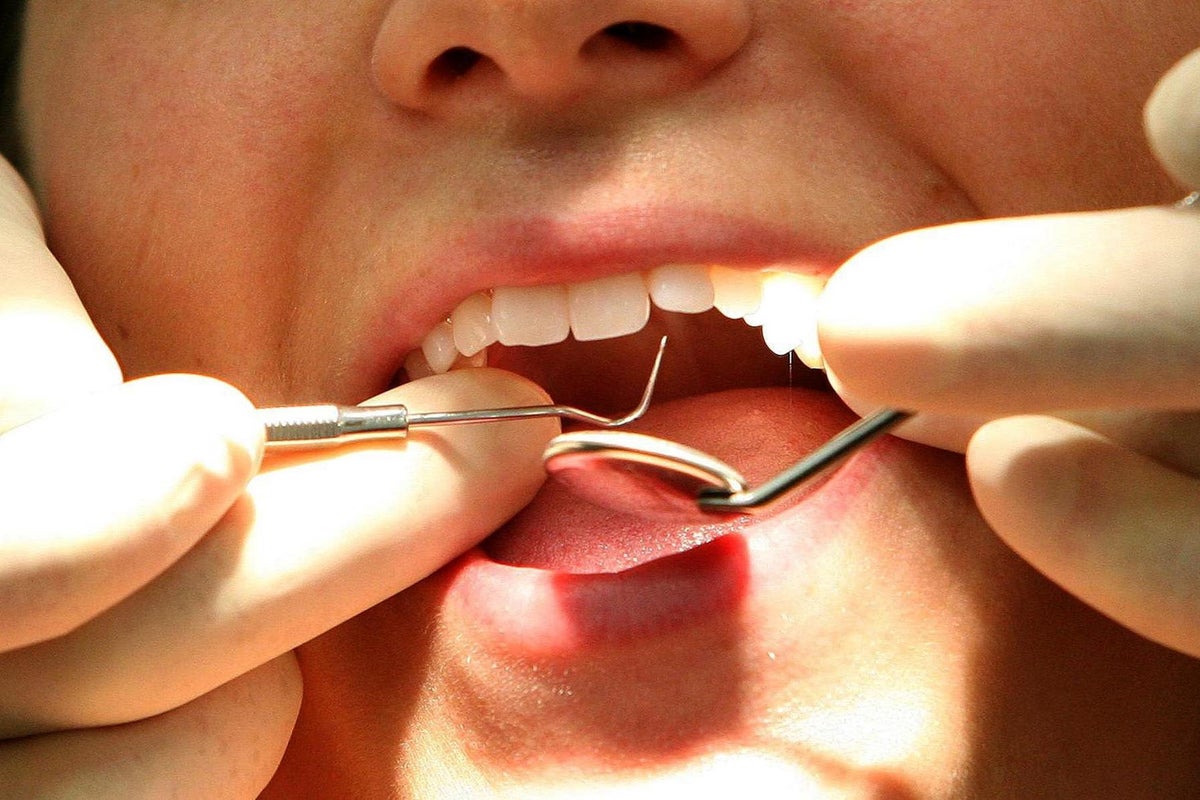
The Government is proposing a swathe of changes to fix the “broken NHS dental system”.
Newly qualified dentists could be made to work in the NHS for three years to boost the number of appointments.
Plans also include a requirement for dentists to deliver a set amount of urgent and unscheduled care each year.
A new, special course of treatment for patients with severe gum disease or with at least five teeth with tooth decay and more money for denture modifications are also part of the dental contract reforms.
Ministers hope the reforms will incentivise dentists to take on the most complicated cases, often dealt with at a loss under the current system.
The Department of Health and Social Care said it will also bring in robust preventative measures for children’s teeth, including better use of tooth resin sealants for children with a history of dental decay and applying fluoride varnish without a full dental check-up.
The changes will be put to consultation and likely to be in force from April next year.
Responding to the announcement, the British Dental Association said the plans should be “rolled out at pace” but stressed that a “broken system remains in place”.
Satisfaction with NHS dentistry has fallen to a record low, with more than one in four adults said to be struggling to access NHS dental care.
Health Minister Stephen Kinnock said: “We inherited a broken NHS dental system that is in crisis.
“We have already started fixing this, rolling out 700,000 urgent and emergency appointments and bringing in supervising toothbrushing for three to five-year-olds in the most deprived areas of the country.
“But to get us to a place where patients feel NHS dentistry is reliable again, we have to tackle the problems in the system at their root.
“These reforms will bring common sense into the system again, attracting more NHS dentists, treating those with the greatest need first, and changing the system to make it work.
“This is essential to our plan for change – building an NHS fit for the future and making sure poor oral health doesn’t hold people back from getting into work and staying healthy.”
Shiv Pabary, chair of the British Dental Association’s general dental practice committee, said: “These small, positive improvements are about as far as we can fix NHS dentistry while a broken system remains in place.
“We hope they can steady the ship, but this is not the final destination for a service still at risk of going under.”
Benedict Knox, a spokesperson for Healthwatch England, said: “People continue to tell us about the struggle they face accessing and affording NHS dental care.
“These proposals have the potential to incentivise dentists to take on the most complex cases to ensure more people with the most severe problems get the care they need.
“However, we will need to see the proposals in detail to understand the full ambition of the Government.”
The consultation will run for six weeks, closing on August 19.
